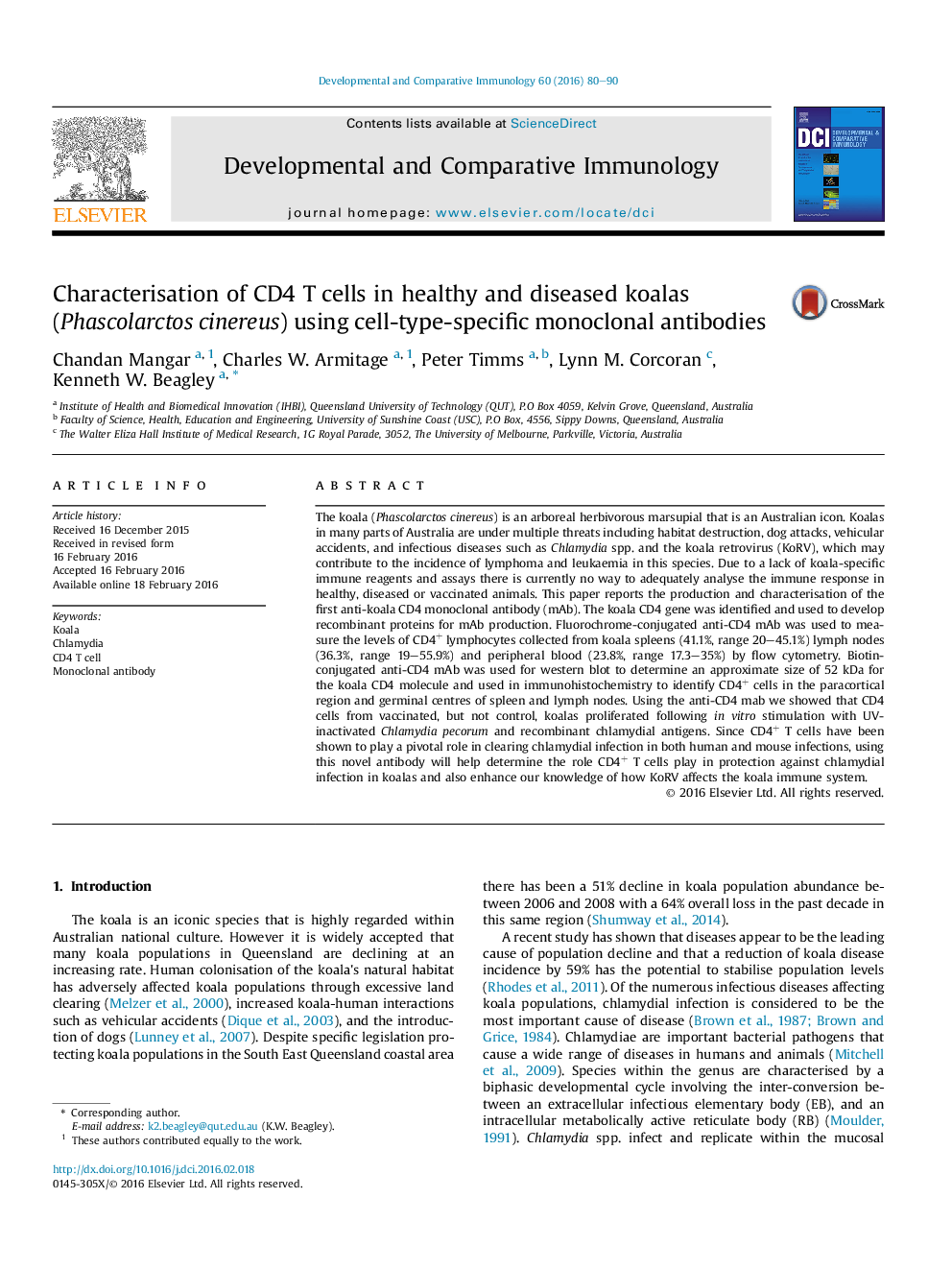| Article ID | Journal | Published Year | Pages | File Type |
|---|---|---|---|---|
| 2428801 | Developmental & Comparative Immunology | 2016 | 11 Pages |
•The development of a novel koala specific monoclonal antibody recognising CD4+ cells.•The ability to isolate koala CD4+ by flow cytometry, western blot and immunohistochemistry.•Vaccinated koalas have proliferating CD4+ T cells against chlamydial antigens and UV inactivated chlamydia.
The koala (Phascolarctos cinereus) is an arboreal herbivorous marsupial that is an Australian icon. Koalas in many parts of Australia are under multiple threats including habitat destruction, dog attacks, vehicular accidents, and infectious diseases such as Chlamydia spp. and the koala retrovirus (KoRV), which may contribute to the incidence of lymphoma and leukaemia in this species. Due to a lack of koala-specific immune reagents and assays there is currently no way to adequately analyse the immune response in healthy, diseased or vaccinated animals. This paper reports the production and characterisation of the first anti-koala CD4 monoclonal antibody (mAb). The koala CD4 gene was identified and used to develop recombinant proteins for mAb production. Fluorochrome-conjugated anti-CD4 mAb was used to measure the levels of CD4+ lymphocytes collected from koala spleens (41.1%, range 20–45.1%) lymph nodes (36.3%, range 19–55.9%) and peripheral blood (23.8%, range 17.3–35%) by flow cytometry. Biotin-conjugated anti-CD4 mAb was used for western blot to determine an approximate size of 52 kDa for the koala CD4 molecule and used in immunohistochemistry to identify CD4+ cells in the paracortical region and germinal centres of spleen and lymph nodes. Using the anti-CD4 mab we showed that CD4 cells from vaccinated, but not control, koalas proliferated following in vitro stimulation with UV-inactivated Chlamydia pecorum and recombinant chlamydial antigens. Since CD4+ T cells have been shown to play a pivotal role in clearing chlamydial infection in both human and mouse infections, using this novel antibody will help determine the role CD4+ T cells play in protection against chlamydial infection in koalas and also enhance our knowledge of how KoRV affects the koala immune system.
